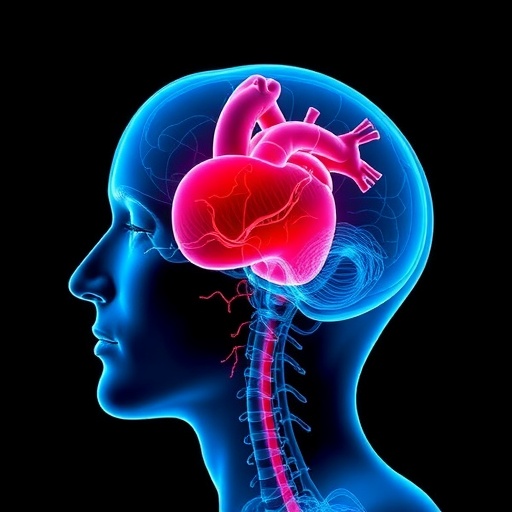In a pivotal study published in the journal Advances in Therapy, researchers have unveiled alarming insights into the intersection of myocardial infarction and multi-modality treatment approaches for head and neck cancer. The investigation, led by a team of experts including Asarkar, Vasudevan, and Fernandez-Alvarez, collates extensive data from a wide variety of clinical contexts to assess the global incidence and mortality rates associated with myocardial infarction in this vulnerable patient population. As cancer therapies become more refined and multifaceted, it is critical to understand the cardiovascular risks they may impose on patients undergoing treatment.
The systematic review and meta-analysis illuminate the profoundly concerning reality faced by patients receiving multi-modality treatments for head and neck cancers—specifically the interplay of chemotherapy, radiation therapy, and surgical interventions. This research is particularly significant given the rising incidence of such cancers and the increasing complexity of their management. Cardiac events, especially myocardial infarctions, have emerged as a notable complication that can substantially affect treatment outcomes and overall patient survival rates.
What makes this study so crucial is its comprehensive nature. It synthesizes data from a multitude of studies, encompassing varied patient demographics and treatment protocols. These details are vital for understanding not just the statistical realities of myocardial infarction occurrences but also the underlying mechanisms contributing to cardiovascular complications in cancer patients. The findings emphasize the necessity for healthcare providers to prioritize cardiac health when planning cancer treatment protocols, thereby aiming to mitigate the risks associated with these life-saving therapies.
Moreover, the researchers delve into the potential biological mechanisms that may predispose head and neck cancer patients to cardiovascular events. Factors such as inflammation, endothelial dysfunction, and the effects of chemotherapy agents on cardiac tissue can contribute to the increased vulnerability for myocardial infarction. This aspect of the research offers profound implications not only for clinical practice but also for drug development and treatment strategy formulation in oncology.
The authors also discuss the role of patient education and awareness as vital components in managing the cardiovascular risks associated with cancer treatments. Empowering patients with knowledge about potential risks and the signs and symptoms of myocardial infarction can lead to earlier intervention and improved prognoses. This education can be particularly beneficial in rural or underserved areas where access to specialized medical care may be limited.
One of the standout observational findings from this meta-analysis is the disparity in myocardial infarction rates among different demographic groups. The study highlights how age, sex, and existing comorbidities can influence both the incidence and outcomes of myocardial infarction in patients chosen for multi-modality treatment plans. This revelation necessitates a tailored approach to cancer care, whereby clinicians consider the unique risks associated with individual patients.
As therapies for head and neck cancers continue to evolve, ongoing surveillance for cardiovascular outcomes will be paramount. The research calls for the establishment of standardized protocols that include cardiac risk assessment in oncology treatment algorithms. This proactive measure could save lives and significantly enhance the quality of care for cancer patients who are already facing the daunting challenge of their disease.
The implications of this study extend beyond immediate clinical practices and strategies to patient-reported outcomes and quality of life measures. Myocardial infarction events not only complicate treatment regimens but can also strike fear and anxiety into patients dealing with cancer. When patients face the prospect of cardiovascular disease alongside cancer, it can impact their mental health and their perception of treatment efficacy.
The medical community is urged to take these findings seriously and implement a multi-disciplinary approach to patient care that integrates oncologists with cardiologists. Collaborative care teams can ensure that both cancer treatment and cardiovascular health are prioritized throughout the patient journey. This could open new pathways to effectively managing the dual challenges of cancer and heart disease.
Further research is needed to explore the exact mechanisms and risk factors that lead to these heightened cardiovascular events among cancer patients. Future studies should aim at identifying biomarkers or genetic predispositions which may assist in developing specific prevention strategies. Understanding these risk factors will be indispensable in crafting personalized treatment regimens that balance the need for effective cancer care while minimizing the risk of adverse cardiac events.
In conclusion, Asarkar and colleagues have made a significant contribution to the growing body of literature surrounding the cardiovascular implications of cancer therapies, particularly for head and neck cancer patients. Their findings serve as a wake-up call for oncologists and healthcare systems worldwide to reevaluate how they approach the management of patients undergoing intensive cancer treatments. Ensuring that cardiovascular health is a key consideration in cancer treatment strategies will not only improve patient outcomes but could very well save lives in an already vulnerable population.
As this study gains traction, it is poised to influence guidelines and standard practices across oncology departments, setting a new precedent for how to comprehensively assess and manage the health of patients battling cancer. As research continues to unfold, the medical community will be better equipped to tackle the intertwined challenges of cancer care and heart health, thus embarking on a new era in patient management.
Subject of Research: Cardiovascular risks associated with multi-modality treatment for head and neck cancer patients.
Article Title: Global Incidence and Mortality of Myocardial Infarction in Multi-Modality Head and Neck Cancer Treatment: A Systematic Review and Meta-analysis.
Article References:
Asarkar, A.A., Vasudevan, S.S., Fernandez-Alvarez, V. et al. Global Incidence and Mortality of Myocardial Infarction in Multi-Modality Head and Neck Cancer Treatment: A Systematic Review and Meta-analysis.
Adv Ther (2025). https://doi.org/10.1007/s12325-025-03314-4
Image Credits: AI Generated
DOI: 10.1007/s12325-025-03314-4
Keywords: Myocardial Infarction, Head and Neck Cancer, Multi-Modality Treatment, Systematic Review, Meta-analysis, Cardiovascular Risk, Oncology.




